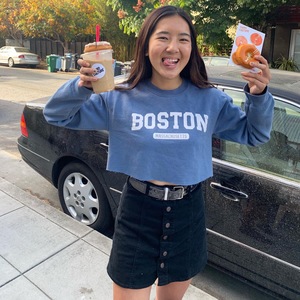In the past couple of weeks, I’ve realized that in times of crises such as the coronavirus epidemic, the main necessity is apparently toilet paper. Many people are flooding grocery stores to stock up on essential supplies, and this hoarding has created a sense of panic within communities that has resulted in the negative treatment, overworking, and under-appreciation of many food service workers. During this pandemic, although self-preservation is a natural instinct, self-awareness and human kindness are not to be neglected. Going forward, we should all use the information we learned coming out of this crisis to better support the food industry as a whole.
Supporting Small Businesses
Co-founders Andrew Chau and Bin Chen of the thriving boba chain Boba Guys had to lay off 400 workers and temporarily close 17 locations for an indefinite amount of time—when or if they will re-open is a question on the table. Despite its success, Boba Guys, along with many other businesses, is not able to sustain itself for months if this pandemic persists. In response to COVID-19, many restaurants are also opening up the option to pick up or deliver food, and a fellow Spoon member has written a quick guide on how we can support small businesses during this time.
#SpoonTip: If you have ever seen Third Culture Bakery’s mochi muffins on Instagram and wondered when a good time to get them would be, now is your chance. Third Culture is offering to ship their mochi muffins nationwide.
Combating Xenophobia/Racism in the Asian-American Community
Although every business is being affected, Asian American business owners have taken a particularly hard hit. The xenophobic dialogue labeling COVID-19 as the “China Virus” has unjustly normalized racist and discriminatory actions. Even if the pandemonium surrounding COVID-19 lightens in the following months, the impacts of these exclusionary actions could leave marks on many ethnic communities and people. Communities like San Francisco’s Chinatown are already being threatened by gentrification, and with the additional pressure of increased xenophobia, the broader community must band together in solidarity and protect these ethnic communities from being pushed out.
Appreciating Service Workers
The most heartbreaking part of this epidemic is seeing the signs in aisles of grocery stores that ask people to treat service workers with respect. Only 25% of service workers receive paid sick leave, and the evident injustice is that those who are unable to take a leave due to financial constrictions are forced to face a higher risk of exposure to COVID-19. Socioeconomic disparities bleed through to create health disparities, and the people who work within our communities to farm our produce, make our daily cups of coffee, or cook our meals are not given the recognition that they deserve. Showing your appreciation through a “thank you” or through donating to one of the relief funds supporting service workers is a start towards creating mindfulness for our future.
Increasing Accessibility to Basic Needs
As everyone fights over rolls of toilet paper, eggs, and gallons of milk, half of the grocery stores have empty shelves and we are all experiencing a fraction of the reality of those who struggle to access basic needs outside of this pandemic experience. The people most at risk for being exposed to COVID-19 are those whose food and housing are insecure, yet the irony is, those are the same people that face so many barriers to healthcare. If you’re financially able, donating some basic supplies (maybe one of your 168 rolls of toilet paper) or food to your local food banks is one small step that could make a significant difference.
#SpoonTip: For those who need assistance in accessing basic needs, the UC Berkeley Basic Needs Center has released a resource document including volunteer opportunities, local food banks, financial assistance, and more to ensure that we are all supporting one another as a community during this pandemic.
Reducing Food Waste
During this pandemic, the instinct for self-preservation kicks in. However, buying multiple gallons of milk not only denies others of this resources but will also most likely result in food waste. 40% of food produced in the United States is wasted, and in response to the constant hoarding, many grocery stores have implemented a no return policy. To reduce food waste both during this pandemic and within our everyday lives, we can be more mindful of our grocery habits. This is the time to experiment in the kitchen, and a good way to practice mindfulness in our consumption is to plan out what meals we are cooking beforehand. That way, when we step inside a grocery store, we know exactly what to shop for, and we are also reducing our risk of exposing service workers or ourselves to any potential health risks.
Main Takeaway
There are many actions we can take as a community to build support and fight this pandemic, and although following CDC guidelines to flatten the curve is an important first step, practicing mindfulness is a takeaway from this pandemic that we can carry with us in our everyday lives. Being mindful of reducing our consumption, the impact of the language we use, and how we treat workers in the food industry are actions that can create an impactful future outside a pandemic or not.







